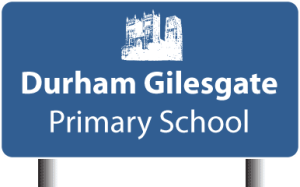Intent
At Durham Gilesgate Primary School, we recognise that Music is an integral part of the National Curriculum and our intent is that we promote a love of music and singing across a broad curriculum. Children will gain a firm understanding of what music is through listening, singing, playing, evaluating, analysing, and composing across a wide variety of historical periods, styles, traditions, and musical genres. We seek to develop a curiosity for the subject, as well as an understanding and acceptance of the validity and importance of all types of music, and an unbiased respect for the role that music may wish to be expressed in any person’s life. We are committed to ensuring children understand the value and importance of music in the wider community, and are able to use their musical skills, knowledge, and experiences to involve themselves in music, in a variety of different contexts.
Implementation
The music curriculum ensures that children sing, listen, play, perform and evaluate. This is embedded in classroom activities as well as weekly singing assemblies and whole school performances where instruments are incorporated and children have opportunities to sing solo. Teaching and learning shows progression across all key stages within the strands of music and staff are upskilled through the use of specialist music teachers. In Foundation Stage, children are taught by a specialist music teacher for one hour each week throughout the year. In Key Stages 1 and 2, each class experiences specialist music teaching for a ½ term. Music students from Durham University also play an important role in the teaching of music in our school. Each week, they support teaching in 3 different year groups before taking a whole school singing assembly.
In the classroom, children learn how to play instruments and how to read basic music notation. They also learn how to compose focussing on different dimensions of music, which in turn feeds their understanding when listening, playing, or analysing music using subject specific vocabulary. Composing or performing using body percussion and vocal sounds is also part of the curriculum; this develops the understanding of musical elements without the added complexity of an instrument.
In discussions, children show respect for others’ opinions which is part of our ‘growth mind set’ curriculum driver. The Music curriculum develops an understanding of culture and history, both in relation to students individually, as well as ethnicities from across the world. Children are able to enjoy music, in as many ways as they choose – either as listener, creator or performer. They have an understanding of how to further develop skills less known to them, should they ever develop an interest in their lives which is part of our curriculum driver ‘Heritage and Opportunity’.
Impact
In our school, children have access to a varied programme, which allows them to discover areas of strength, as well as areas they might like to improve upon. We expect that the majority of children will achieve at age related standards in music at the end of each year. We recognise that some children may not achieve this standard but we will expect that they have made good progress from their starting point.
We also recognise that some other children will exceed age related standards and we will have deepened learning for these children. Children’s knowledge, understanding and skills will build progressively over time and this will be evidence in performances, assessments, display and through discussions with children. In recognition of our school’s commitment to providing high quality music education, Durham Music Service have awarded us membership of Music Mark.
